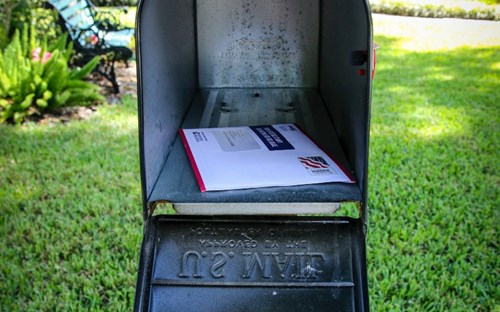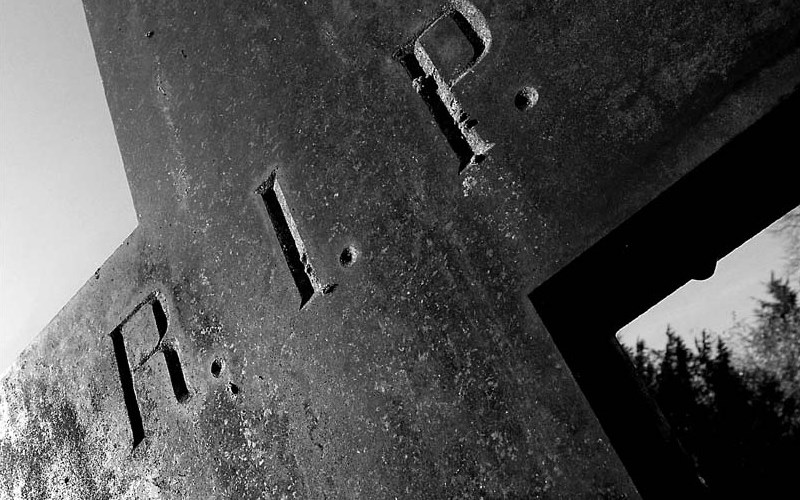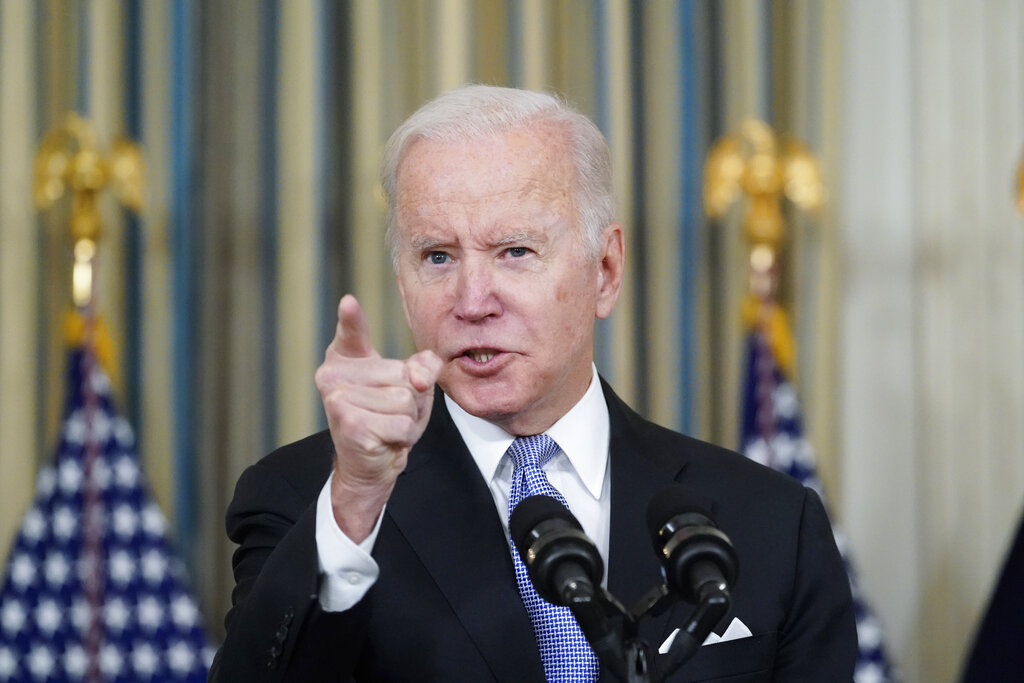A 2021 lawsuit filed against Michigan Secretary of State Jocelyn Benson by J. Christian Adams' Public Interest Legal Foundation (PILF) continues unresolved as it winds its way through litigation. The lawsuit accuses Benson of failure to remove dead voters from the state's rolls and of failing to provide documentation that showed she was at least trying to remove dead voters.
According to Adams, one might logically conclude that Benson would prefer that dead voters retain their privilege. "Why Jocelyn Benson in Michigan doesn't want to do it, it's ideological," he said on American Family Radio Thursday.

But that's certainly not how Benson frames her reasoning publicly, he added.
"She doesn't think people should be taken off the rolls in a way that might risk a legitimate registrant, who's alive, from being removed," Adams told show host Jenna Ellis. "They say so in their defense, saying, Oh, we'll eventually find these using the inactive process, meaning someone who doesn't vote very often, or ever.
"That's not true," he emphasized, "because [we know] there have been people on [the rolls] since the Clinton administration … and that's the problem."
Bush Era law takes air from Benson's argument
The Help America Vote Act of 2002, which was signed into law by President George W. Bush, created minimum standards for states to follow in a number of areas of election administration. In short, said Adams, if the state says you're dead and removes you from the rolls, you can vote if you show up at the polls and prove you have a pulse.
He explained further: "There's a safety valve that allows somebody to vote a provisional ballot if they're at the polls, and they hear, 'I'm sorry, sir. You've been removed because you died,' and you say, 'Well, I'm standing here. I'm not dead.' They have the right to vote a provisional ballot if they should have been on the rolls."
Adams, a former Department of Justice attorney, said it's clear Michigan dropped the ball.
"They didn't keep the rolls clean – and then when they heard about it, they got into a defensive crouch. That's the other thing that happens here with some of these secretaries of state. When you bring them information, they get defensive; they don't like you [because] you're on the other team. They don't want to do their jobs because it's icky conservatives telling them that there's a problem and, that just has no place in American politics," Adams said.
According to the lawsuit filed 2-½ years ago, Michigan's rolls contained 25,975 dead voters. Of that number:
- 23,663 have been dead five years or more.
- 17,479 have been dead for at least a decade.
- 3,956 have been dead for at least 20 years.
Adams explained that PILF staffers visited the graves of long-deceased voters and documented their findings with video.
"We paid a lot of money to get that information. We hired a lot of data experts who were very good, and we know that some of these dead have been on the rolls since the 1990s, some have been dead since 1997 and even earlier," he shared. "This has happened because of neglect and an ideological secretary of state who doesn't want to follow federal maintenance obligations."

Yet his group didn't rush to the courthouse with its findings, he continued.
"We gave them the data before we sued. We tried to help them like we do other states, and they just dug in and said, 'We're not going to clean up these rolls. You're a crazy conservative group. Therefore, we don't listen to you.'"
Adams argued it was like butting heads with the "cancel culture" when it comes to the right to petition the government.
"They just didn't do anything – so here we are in federal court, and we went out and got video of the actual gravestones. We went and visited them in the graves, the cemeteries. These are clearly the same people who have been on the voter rolls for 20 years," Adams added.
Not Benson's first rodeo with Republicans
Benson has scuffled with Republicans before. Last fall, the Michigan Court of Appeals ruled against Benson in a lawsuit that said she was outside of her authority in creating new rules for poll watchers and challengers.
The 2022 lawsuit was brought by a group of Republicans who had previously served as poll challengers and two unsuccessful legislative candidates, according to BridgeMichigan.com.
 BridgeMichigan.com also reported that state courts had previously ruled against Benson in two other rules cases, one in which she attempted to ban open carry of guns at polling places but was found to have not followed the state's Administrative Procedures Act; another in which she was found to have not followed procedure in instructing clerks to assume that signatures on absentee ballots were valid.
BridgeMichigan.com also reported that state courts had previously ruled against Benson in two other rules cases, one in which she attempted to ban open carry of guns at polling places but was found to have not followed the state's Administrative Procedures Act; another in which she was found to have not followed procedure in instructing clerks to assume that signatures on absentee ballots were valid.
Some level of mail-in voting is available in all states, but some have certain requirements. Michigan voters can vote by mail if they simply apply for a ballot.
"That's the problem. You go to mail voting and anything can go wrong," Adams said.
There was record mail-in voting in the pandemic election of 2020, most of it favoring Joe Biden, whose campaign encouraged Democrats to vote early, according to CNN. In-person voting on Election Day appeared to favor Donald Trump.
Adams explained there are plenty of incentives for Benson to clean up Michigan's rolls.
"First of all, it's federal law; and if you don't do it, groups like mine are going to sue you," he warned. "… We've sued more than dozens of places in the last couple of years for failing to follow federal law.
"Second, if you're a politician running for office, you don't want to be mailing materials at great expense to bad addresses. This is an issue that affects politicians. If the voter rolls are 10, 20 or 30 percent bad, you're wasting 10, 20 or 30 percent of your campaign funds on voter contact …. Those are two pretty good incentives," he said.







